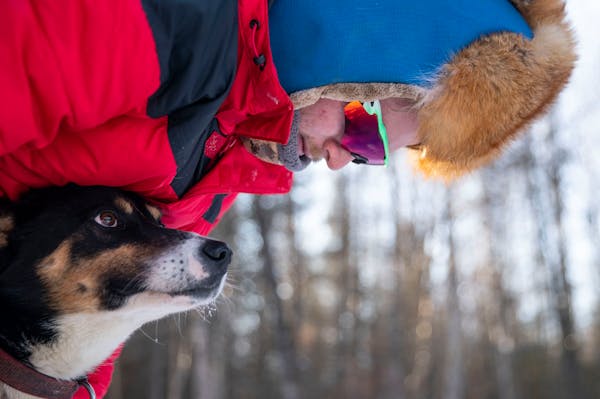Third baseman/pitcher Ero Wallin of Silver Bay's William Kelley High School leads the state in hitting with a .709 batting average and RBI with 53, and is tied for the state lead in home runs with nine.
But when the northeastern Minnesota senior comes home after a typically successful effort leading the 17-1 Mariners to victory, don't expect to find him plopped in front of the television or immersed in an interactive videogame.
"That doesn't interest me that much," he said.
More than likely Wallin, who lives a few miles west of Silver Bay in Silver Creek, will be out tending to his dogs.
When he isn't playing baseball or hockey or football, or hunting birds or hauling in fish, all typical northern Minnesota pursuits, Wallin is one of the youngest sled-dog racers in the state. As he closes in on graduating from high school, he's already a veteran of roughly 10 cross-country trail sled dog races, behind a pack of 12 Alaskan huskies.
Last winter, the 18-year-old Wallin finished sixth overall in the centerpiece race of the John Beargrease Sled Dog Marathon, a 300-mile odyssey that is the longest sled dog race in North America outside of Alaska.
"It was a lot harder than it seems," said Wallin, who had raced in shorter, junior-level Beargrease races before last January. He added that while he was proud to finish as high as he did, there was more there for the taking.
"We knew going in we had a good dog team. I honestly thought we could have placed higher."
He's pretty sure he's not the only high school-aged musher in the state, but he had yet to meet another. "I know there probably are others, but none that I can name," he said.
Wallin got into sled-dog racing as a family pursuit. His father, Ward, helped him get started and his mother, Colleen, mushes, too. The family has about 30 dogs they board and train, buoyed by the addition of three puppies preparing for life as a sled dog.
But there's not a lot of training going on right now, Wallin said. Too warm.
"We don't want to run them if it gets above 45 degrees," he said. "They can get overheated."
For the time being, the dogs aren't much different than a family pet. "They love it when we come around. We love them up like no other," Wallin said. "This time of year, they get fat, just like the rest of us."
When the weather cools down, that's when the action heats up. Training runs get much longer, sometimes as much as 50, 70 miles a pop. Cold makes no difference. Not for the dogs, at least.
"They're bred for the cold," Wallin said with assurance, adding that temperatures as low at 40 to 50 below are tolerable to the dogs. "The only thing you have to worry about is keeping yourself warm."
Of concern about caring for the dogs, Wallin said, "Some people worry about animal cruelty, but this is exactly the opposite. These dogs love to work and we treat them like kings and queens. We pay more attention to their health than to our own."
After high school, Wallin wants to play baseball in college. "It's my favorite sport," he says simply, still waiting for a concrete offer. And he can't picture a life without getting on a sled without a pack of dogs.
"If I get home and I've had a bad day or something, I might grab a quick meal, then I'll hook the dogs up and go for a run," he said. "It helps being around 12 of your best friends."






